Life
Sign up for our newsletter
We summarize the week's scientific breakthroughs every Thursday.
-
 Health & Medicine
Health & MedicinePets and people bonded during the pandemic. But owners were still stressed and lonely
People grew closer to their pets during the first two years of COVID. But pet ownership didn’t reduce stress or loneliness, survey data show.
-
 Genetics
GeneticsWhat was Rosalind Franklin’s true role in the discovery of DNA’s double helix?
Two researchers say that Rosalind Franklin knowingly collaborated with James Watson and Francis Crick to discover the molecular structure of DNA.
-
 Climate
ClimateThawing permafrost may unleash industrial pollution across the Arctic
As the frozen ground warms due to climate change, industrial pollutants could flow free from thousands of sites across the Arctic.
By Nikk Ogasa -
 Plants
PlantsUltrasound reveals trees’ drought-survival secrets
Scientists used ultrasound sensors and electrical probes to reveal how drought affects the tissues of living trees.
-
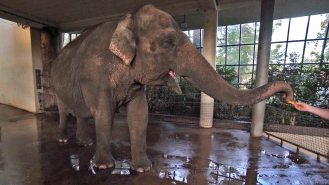 Animals
AnimalsThis elephant peels bananas, but only slightly ripe ones
Pang Pha, an Asian elephant at Zoo Berlin, probably picked up the skill by observing her zookeeper.
-
 Earth
EarthA massive cavern beneath a West Antarctic glacier is teeming with life
A subglacial river has carved out the cavern beneath the Kamb Ice Stream, a West Antarctic glacier, and may be supplying nutrients necessary for life.
By Douglas Fox -
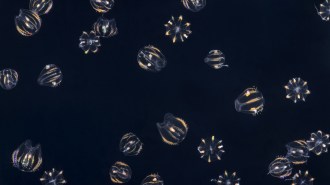 Life
LifeComb jellies have a bizarre nervous system unlike any other animal
A 3-D map of the comb jelly “nerve net” reveals fused neurons that lack the space, or synapses, most neurons use to communicate. Did it evolve independently?
By Jake Buehler -
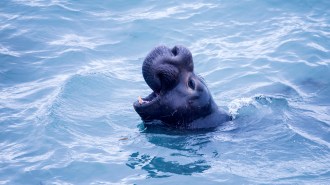 Animals
AnimalsNorthern elephant seals sleep just two hours a day at sea
The marine mammals have truly awesome stamina for staying awake, sleeping only minutes at a time on months-long trips at sea.
-
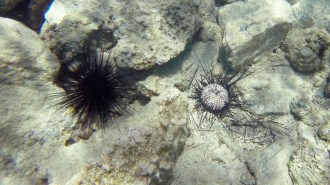 Animals
AnimalsUrchins are dying off across the Caribbean. Scientists now know why
A type of single-celled microorganism associated with coral diseases is behind a sea urchin die-off in the Caribbean.
By Anna Gibbs -
 Neuroscience
NeuroscienceThe classic map of how the human brain manages movement gets an update
Functional MRI scans provide a new version of the motor homunculus, the mapping of how the primary motor cortex controls parts of the body.
-
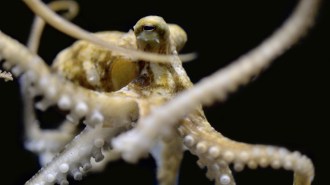 Animals
AnimalsOctopus, squid and cuttlefish arms evolved to ‘taste’ different compounds
Octopus suckers can taste a variety of greasy, sticky molecules, while squid and cuttlefish suckers detect bitter compounds.
-
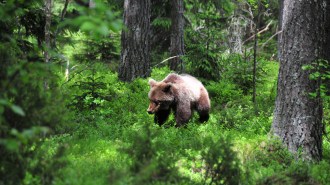 Animals
AnimalsHibernating bears don’t get blood clots. Now scientists know why
People who sit still for hours have an increased risk of blood clots, but hibernating bears and people with long-term immobility don’t. A key clotting protein appears to be the reason why.